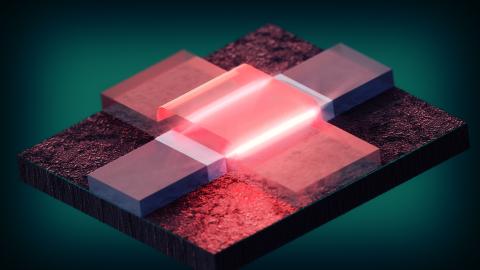Dr Alessandro Rossi (Microelectronics Group), Dr Fernando Gonzalez-Zalba (Hitachi Cambridge Laboratory) and Professor Jason Robinson (Department of Materials Sconce and Metallurgy)
Quantum computers and simulators promise to use quantum mechanics to solve problems that today cannot be solved by conventional machines. Among the applications of these devices one may envisage accurate simulation of new medicines and materials, efficient large scale modelling for weather and financial market forecasting as well as fast database searches, ideal for the Big Data era, and identification of base-pairs associated with genetic diseases. However, universal quantum computers do not exist yet because of the difficulty in building a large scale and fault-tolerant quantum processor with sufficient number of computing elements, i.e. quantum bits or qubits.
A fully-fledged quantum processor requires qubit-specific methods to initialise, manipulate and read the information. For readout, promising solid-state architectures make use of external electrometers. However, these are bulky additional components that can be replaced by a more compact and scalable element, i.e. an in-situ gate sensor.
In this Pump Prime project, we aim at developing gate-based sensing further by extending its applications to the time domain. Fast real-time quantum state readout is a crucial requirement for quantum error correcting protocols which may result in scalable systems. Gate-based sensors work by monitoring the resonant state of an electrical resonator coupled to the quantum system to be measured. We will focus on improving the quality of the resonator as well as the coupling to the quantum system, key parameters toward the extension of this technique to the time-domain.
Although this technique is general and could be applied to the study of charge dynamics in single molecules and DNA for example, for this project, we have decided to explore spin qubits in silicon as the target readout system. Spins in silicon are one of the most coherent systems in nature and are, therefore, excellent candidates for future solid-state quantum memories. If successful, this technique will facilitate the development of integrated silicon-based quantum computing architectures.


